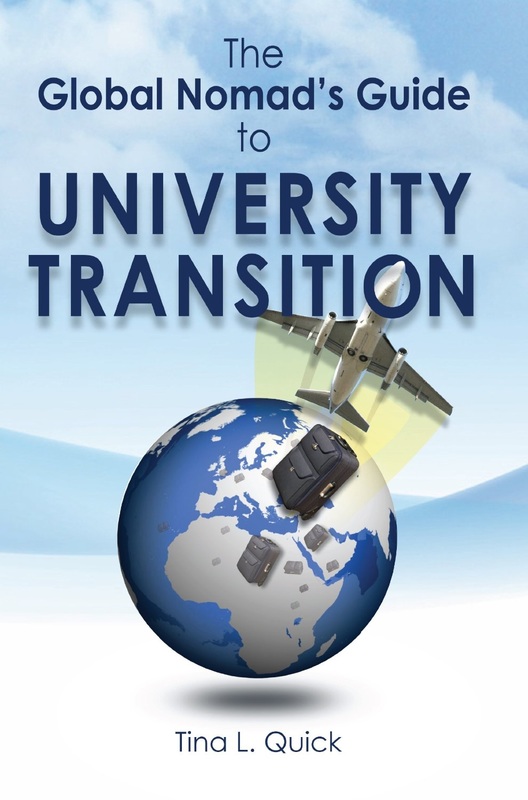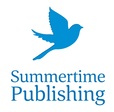Jo Parfitt talks to Tina Quick, author of The Global Nomad's Guide to University Transition16/6/2010
Tell me about your book. What is it about? Can you describe it in just a few sentences? To show that a book has focus it is vital that it can be described briefly and succinctly.
The Global Nomad's Guide is to University Transition is a handbook for students who have been living outside their passport country but are either returning home or transitioning to another host country for college/university. Unlike their domestic peers, these global nomads must face a double transition – adjusting to a new stage of life as an independent young adult, as well as adjusting to a new culture, for even their home country will be foreign to them in many respects. This is something that takes them by surprise as they struggle to fit in, understand themselves and their peers and search for a place of belonging. Why did you write it? In the five years following my family’s re-entry to the U.S. and, as a result of living in Boston which has over 200 colleges and universities, I found I was coming into contact with more and more college students who had lived the expatriate life. I kept hearing familiar patterns to their stories, some far worse than others, but too many were stories of silent suffering, sadness, loneliness or, in extreme cases, severe depression. These were young adults who had spent incredibly rich childhoods in other countries and cultures. They spoke a variety of languages, understood that there are many ways of doing, living and believing that are not necessarily wrong but just different from their home-country norms. They sported hidden diversity that made them good bridge builders, ambassadors and communicators. But somehow upon returning to their “home” culture, they found themselves misunderstood, weird, strange, standing out as being different, misfits in the very place where they had always imagined they belonged. Their stories and experiences, together with my own family’s experiences, convinced me that this population of repatriates needed to benefit from what those who had gone before them had learned along their journey. Why do you think needed to be written? What will your book do for other people? Third culture kids/global nomads are very different from most of the people they will be surrounded by on their university or college campuses. They need to understand that it is their life experiences that have made them different. If they learn how to live out those differences in a positive way, they will not only survive but they will thrive in their university setting. TCKs have the double transition of not only having to adjust to a new stage of life as an independent adult, but to a new culture as well, for even their home culture will be foreign to them in many respects. If they understand what to expect as they go through the various stages of transition and are prepared for the quagmire of emotions that accompany each those stages, they will be able to get through it. They will come to understand that the roller coaster ride is not only normal but even expected. This book will guide students to a better understanding of themselves, what their issues are and give tips, tools and strategies for dealing with those issues. Personal stories and advice from TCK students who have gone before them will pave the path for a smoother transition. Who do you think will read your book? What made you think that there was a market for it? Now that it’s been out for a while, what proof do you have that you were right?
It does not matter how good a book is, or how good your writing is if no one knows about it. What steps have you taken or do you plan to take to promote your book? Are you a speaker or trainer? Do you have a blog? A website? A newsletter? Do you use Facebook, Twitter or other social media tools? What about press releases and sending out review copies and free articles? Have you had any other ideas? Which methods do you think work best and can you give me any examples?
How did you publish your book? What was your route to publication? Self-published through a publishing agent – Summertime Publishing Self-belief can be a big problem for writers. How did you manage to stay confident in your ability and remember that you were good enough to write your book? How did you cope with the days when you thought you could not do it and that it was rubbish? This is very personal, but I am happy to share it. I felt I was called by God to write this book. Every time I would begin to be full of self-doubt, a little sign of encouragement (and sometimes a big sign) like an email from someone or a conversation with someone who ‘got it’ would appear. I walk my dog in the woods everyday and in those quiet moments so many thoughts, ideas and inspirations would come to me. I knew, without a doubt, that I was meant to write this book. So many insights were revealed to me and I knew they had to be shared with a broader audience than what I could achieve through my seminars alone. It’s easy to procrastinate, to blame writers’ block and to put off finishing your project. How did you keep yourself motivated? And how long did it take you to write it? What was your routine? I gave myself a deadline and I worked feverishly to meet it or even beat it. I wanted these students to have this book in their hand for graduation. I put most of my life on the back burner, even giving up some of my regularly routines and activities. I knew it would only be for a few months, so it wouldn’t be too bad. Some days I had too much to do with priorities for the house or family and I gave up writing for that day. But then I would make sure I had huge blocks of time to just write. What was your biggest challenge regarding the writing of your book? How have you overcome that? I was often confused as to the process, but I just kept asking questions. I believe that getting feedback is really important to help you recognise when your writing is really good and to find ways of making it even better. How did you get feedback on your work? I sent some chapters I was having trouble with to certain people who I knew would be truthful and give me some advice. I gave a few chapters to folks to review and give me their opinion. If you were to give advice to someone else who is thinking about writing a book based on their life experience what would be your number one tip? If you do not have a publisher you may want to get your book project subsidized. There are many internet sites where you can fundraise for your projects such as KickStarter.com. Check it out. |
�
All the latest news from the team at Summertime Publishing
As an Amazon Associate, we may earn a commission from qualifying purchases. This does not affect the price you pay or your consumer rights.
Archives
June 2024
|


